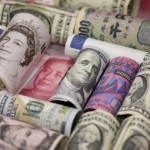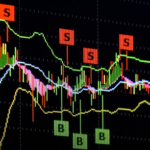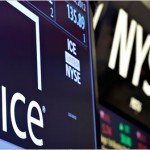Bank of England cuts rates, and stock markets rise

European markets opened higher on Wednesday despite a lackluster performance in Asia. Still, futures markets indicated that Wall Street could be in for a tough opening.
Major indexes in London, Frankfurt and Paris opened 1.8 percent higher, shortly after the Bank of England said it would cut interest rates to help British businesses. The performance followed a broad drop in Asia.
The topsy-turvy trading followed a strong surge on Tuesday on Wall Street, which itself followed a Monday plunge that marked the market’s worst daily performance in more than a decade. Investors are vacillating between the threat the coronavirus poses to the global economy and the hopes that governments will unveil a series of measures to help businesses.
President Trump has signaled he would consider ways to stimulate the economy. Options include cutting payroll taxes and extending the American tax filing deadline past April 15. But so far, the White House has yet to announce any specific measures.
Despite Europe’s strong opening, other markets signaled persistent investor jitters. Futures for gold, a traditional safe haven, edged higher. The yield on the 10-year Treasury bond fell, another indicator of investor nervousness.
Oil futures fell after Saudi Aramco, the Saudi Arabian state oil company, said it would expand production capacity without offering a time frame. The announcement signaled no let up in Saudi Arabia’s clash with Russia over oil supplies, which sent crude prices crashing earlier this week.
In London, the FTSE 100 index was up 1.8 percent. Germany’s DAX index rose 1.6 percent, and the CAC 40 index in Paris rose 1.9 percent.
In the Asia-Pacific region, Australia’s S&P/ASX 200 index led the regional declines, falling 3.6 percent. Japan’s Nikkei 225 index fell 2.3 percent. Hong Kong’s Hang Seng index fell 0.6 percent. In mainland China, the Shanghai Composite index fell 0.9 percent.
The Bank of England cut its key lending rate to support businesses
The Bank of England slashed its key borrowing rate on Wednesday before the opening of stock trading in London.
Britain’s central bank cut the rate by half of a percentage point, bringing it down to one-quarter of a percent. The move to support the economy was approved unanimously in an emergency meeting of the central bank’s policymaking board, the Bank of England said.
The move is intended “to support business and consumer confidence at a difficult time, to bolster the cash flows of businesses and households, and to reduce the cost, and to improve the availability, of finance,” the bank said.
The bank announced other measures to support small and medium-size businesses.
During testimony before the Treasury select committee last week, the Bank of England governor, Mark Carney, promised that the bank would “take all the necessary steps to support the U.K. economy and financial system.”
Andrew Bailey, who takes over as governor on Monday, also spoke in front of the Treasury committee and said that coronavirus would be the “first and most pressing issue” that the bank would face. “It is evolving very quickly and in an unprecedented and unexpected fashion, so we have to be nimble,” he added.
Wednesday’s move is the Bank of England’s first rate cut since the virus outbreak. The Federal Reserve did the same last week in the midst of a market sell-off.
A strengthening yen adds to Japan’s economic problems
Japan is keeping a close eye on the value of the yen. Investors have piled into the currency this week, seeking a safe haven against instability in global stock markets.
That has made the yen more valuable against other currencies, creating a new headache for Japanese policymakers. They fear that a strong yen could put additional pressure on the country’s fragile economy, which has been hit hard by a sudden drop in demand at home and abroad brought on by the coronavirus.
The Japanese economy shrank at an annualized rate of 7.1 percent in the last quarter — the largest contraction since 2014 — after an increase in the country’s consumption tax and the damage from Typhoon Hagibis.
The coronavirus was already exacerbating the country’s economic woes. Tourism has dried up, particularly from China, and domestic demand has plummeted as consumers stay home to avoid spreading the illness. The strong yen, which will eat into corporate profits earned abroad and make Japanese exports more expensive, could further raise the risk of Japan falling into recession, generally defined as two consecutive quarters of contraction.
The currency was trading at close to 100 yen to the American dollar earlier in the week, and was trading at about 105 on Wednesday. A month earlier, it was at 110 to the dollar. If the currency strengthens to 100, that will most likely provoke an effort from the country’s central bank to curb the rise.
Wall Street rebounds as investors look to Washington
Shares on Wall Street surged on Tuesday, bouncing back from their sharpest drop in more than a decade, as investors seemed to take comfort from efforts in Washington to protect the economy from damage caused by the coronavirus outbreak.
Though the rebound was at times wobbly, and shares dipped back into negative territory earlier in the day Tuesday, the S&P 500 ended nearly 5 percent higher — recouping more than half of the previous day’s losses — in its biggest one-day gain since December 2018.
But analysts stressed that any recovery in the markets will likely be tenuous. The White House has not announced any specific measures yet, and increased testing for the coronavirus is expected to generate rising numbers of new infections in the coming weeks, which could be a new challenge for investors’ nerves.
Source: The New York Times





























